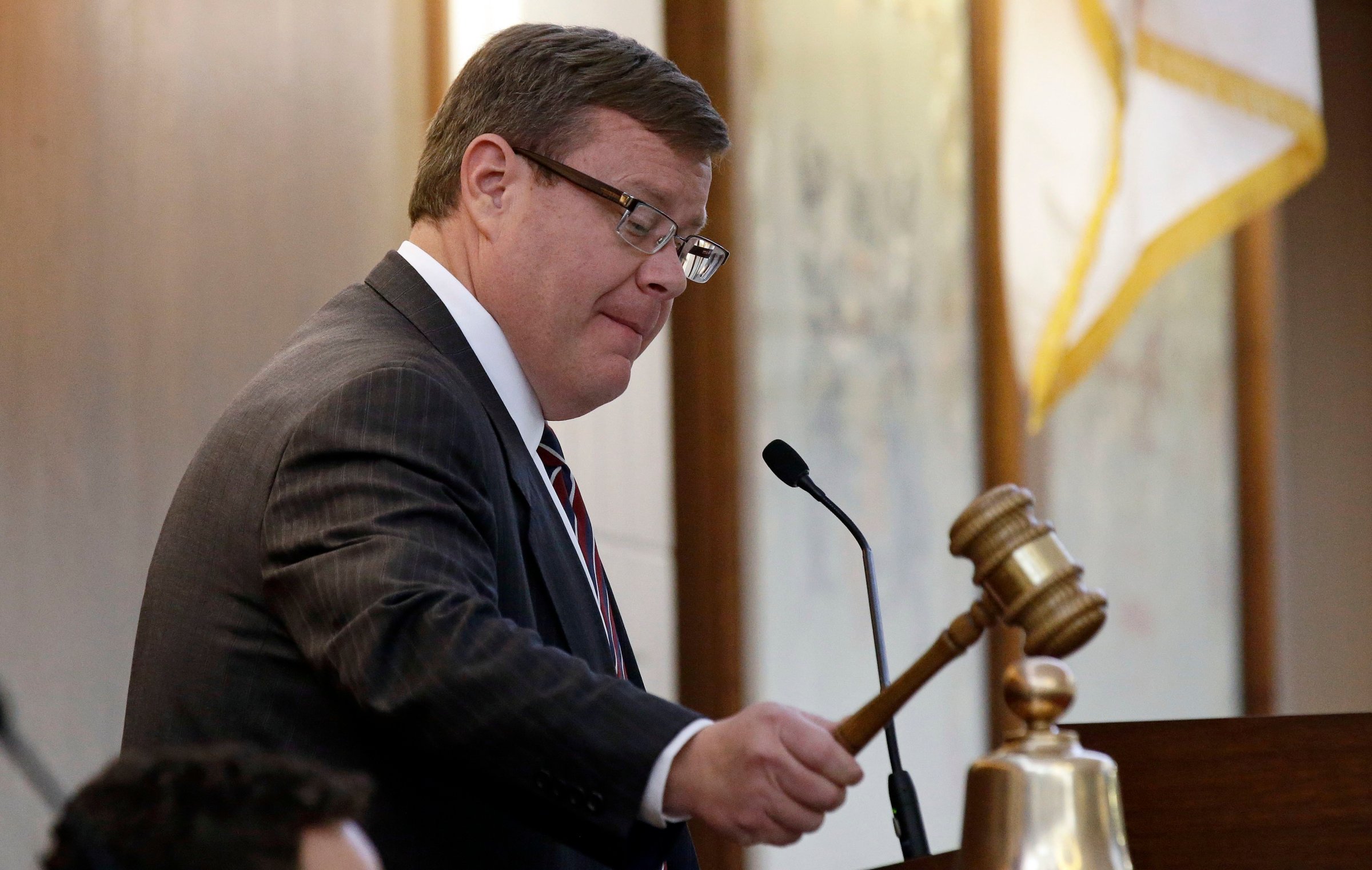
North Carolina Gov. Pat McCrory signed an unprecedented law passed by a last-minute session of the Republican legislature Friday that would radically curb the power of the incoming Democratic governor, despite widespread protests and a vow to challenge the measure in court.
The legislature voted along party lines to pass a bill that would give Republicans control of the state Board of Elections during even-numbered years (which are typically election years) and changes the rules to give Republicans more control of local elections even when a Democrat is the governor. (Under current rules, the governor’s party gets two out of the three local board of election seats, but the new measure would split control between the parties.)
“It’s an old fashioned, raw boned power grab,” said Carter Wrenn, a veteran North Carolina political strategist. “This isn’t really a fight on issues, this is an old fashioned right-or-wrong.”
The state Senate is also debating a bill that would require the governor to get Senate approval for all cabinet appointments, rescind his ability to appoint trustees to the University of North Carolina school system, and cut the number of state employees he can hire and fire by more than two-thirds.
The two measures are part of a last-ditch effort by a Republican legislature to strip the executive branch of power just as Democratic Gov.-elect Roy Cooper prepares to take office. Republican Gov. Pat McCrory conceded to Cooper two weeks ago after losing to him in the tightest gubernatorial race of the year. The same legislature passed the controversial HB2 law restricting anti-discrimination measures to protect gay and transgender people, known as the “bathroom bill.” The intense backlash to that bill, which resulted in protests, cancelled concerts, and sports boycotts, may have contributed to McCrory’s defeat.
In a news conference Thursday, Cooper condemned the measures as “pushed through in the dark of night” and called them “more ominous” than a conventional power-grab. But he indicated that he plans to sue if the law is unconstitutional. “They will see me in court,” he said. “And they don’t have a very good track record there.”
Some experts said they weren’t aware of such a maneuver in more than a century. “There’s no precedent in the last 100 years,” said Michael Gillespie, a professor of political science at Duke University, who compared the current political climate to the legislative tensions surrounding Jim Crow laws. “The goal is to do whatever they can to sustain their dominance in the state legislature.”
Republican lawmakers objected to the widespread characterization of the law as a legislative overthrow of the executive branch. “This is no coup,” said Republican State Rep. Nelson Dollar. “Every member was elected in a constitutional way.”
Protesters flooded the State Legislature on Thursday and Friday, chanting “all political power comes from the people” and “you work for us.” At least 17 people have been arrested at protests so far.
Other observers see the unprecedented measure as a savvy political move that is entirely within the bounds of fair play. “I see it as seizing the opportunity to accomplish conservative things while you have the opportunity while you have a supermajority,” said John Davis, an independent political analyst in North Carolina. “It looks evil, but so does making sausage.”
“It is a brazenly partisan power-grab,” he said. “My reaction to it after observing for 40 years is: so what?”
More Must-Reads from TIME
- Cybersecurity Experts Are Sounding the Alarm on DOGE
- Meet the 2025 Women of the Year
- The Harsh Truth About Disability Inclusion
- Why Do More Young Adults Have Cancer?
- Colman Domingo Leads With Radical Love
- How to Get Better at Doing Things Alone
- Michelle Zauner Stares Down the Darkness
Write to Charlotte Alter at charlotte.alter@time.com